|
||||||||
|
|
|
2018-02-05 ArtNo.46189
◆Review:The baptism of the Holy Spirit (The conflagration at the end of the eon)
In the light of the conflagration at the end of the eon he poses his question
The patchrobed monk is blocked by the double barrier. What a pity for him bounded to a single phrase, "it follows the other," Eagerly he travelled out and back solitarily for ten thousand miles. ○The origin of Pauline theology In the Epistle to the Galatians, Paul says, "I went away into Arabia, and later I returned to the city of Damascus. Then three years later I went to Jerusalem to get to know Peter, and I stayed with him for fifteen days. The only other apostle I met at that time was James, the Lord's brother." (Ga 1:17-19) And Paul argues, "The gospel message I preach is not based on mere human reasoning. I received my message from no human source, and no one taught me. Instead, I received it by direct revelation from Jesus Christ. (Ga 1:11-12) Even before I was born, God chose me and called me by his marvelous grace. Then it pleased him to reveal his Son to me so that I would proclaim the Good News about Jesus to the Gentiles. (Ga 1:15-16)" Paul preached, "If one acknowledges Jesus as Savior, he can revive with eternal life on the last day." And he refused to put any condition, including the law of Moses, on this gospel. But such faith, which forms the foundation of Pauline theology, is by no means unique to Paul and in fact in the process of handling the conflict between Hebraists and Hellenists, Paul seems to have learned from the latter. ○Paul's travel out and back for ten thousand miles 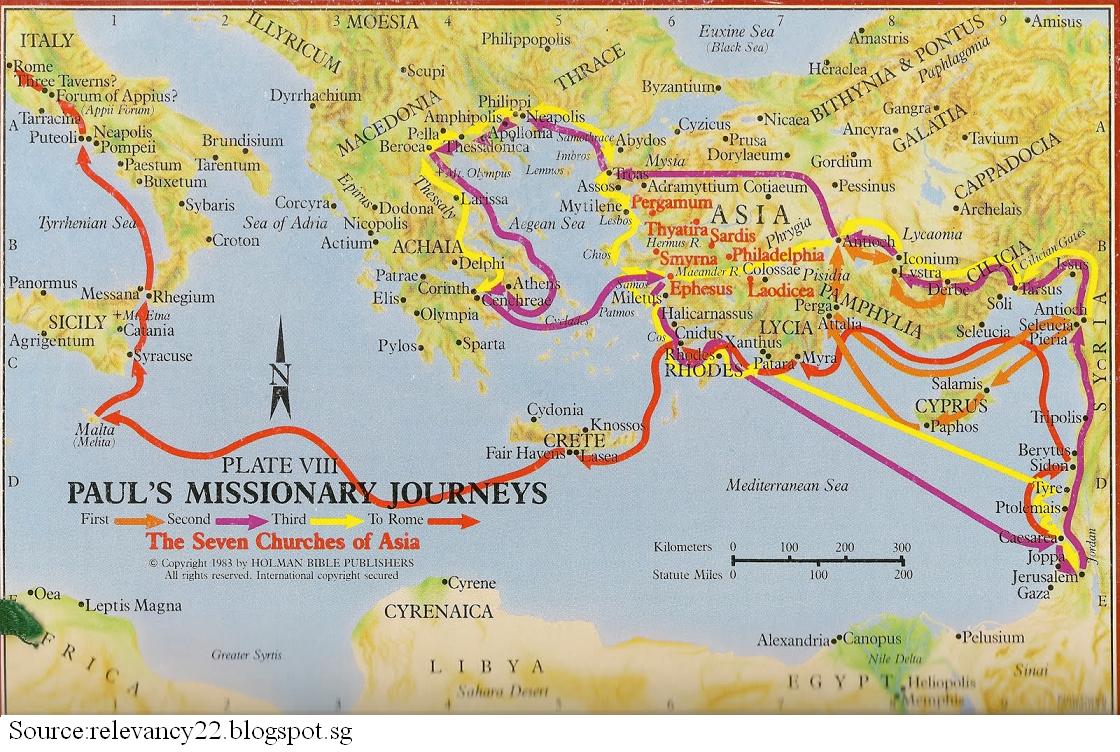 During his second missionary trip, Paul, who had been kept by the Holy Spirit from preaching the word in Asia province, the sphere of influence of the members of the Synagogue of the Freedmen-Jews, went straight to Greece and traveled longitudinally from Macedonia in the north to Athens in the south. while in his third missionary trip, he dared to carry out missionary work in the Asian province against the prohibition by the Holy Spirit. He also visited Greece again and said to have written 'Epistle to the Romans' in the city of Corinth in southern Greece at that time. Paul revealed the plan to go to Rome and go further to Spain after visiting Jerusalem in the letter. He seems to have planned to preach the way of Jesus, which makes one right with God through faith but not by Mosaic law (Roma 3:28), to all the Gentile believers' communities existed throughout the Roman Empire. While Paul says in the Second Epistle to the Corinthians, "From now on, therefore, we regard no one according to the flesh. Even though we once regarded Christ according to the flesh, we regard him thus no longer." (2 Co 5:16) not only in Asia Minor but also in Greece and Rome there seem to have been communities of Gentiles and 'Messiah faith not according to the flesh' seems to have occurred among the believers who did not know at all Jesus in his lifetime in such communities. ○Epicenter of 'Messiah faith not according to the flesh' 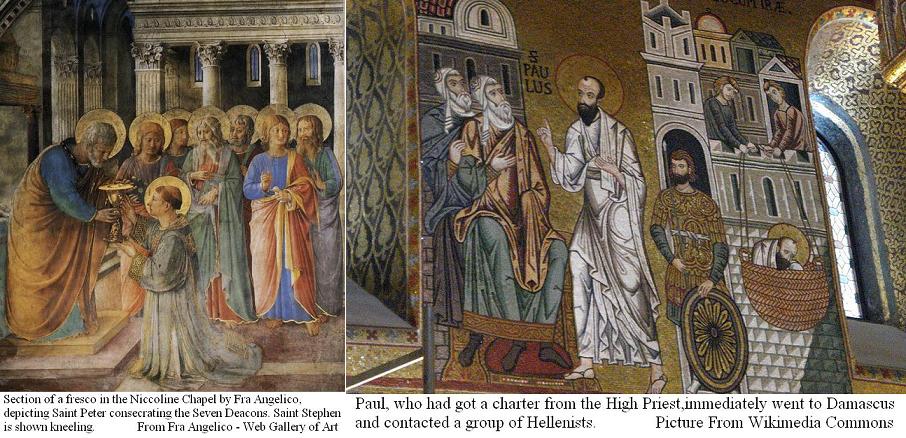 Especially in Ancient Rome, due to inflow of a large amount of Jews, social unrests often occurred and Roman consuls ordered all Jews to leave Rome at least three times in 188 years until around AD 59 when Paul is said to have arrived in Rome. Therefore, habitat segregations for Hellenists and Hebraists, which is the exact opposite to what Paul did in Jerusalem, had been taken place in Rome, too, and a robust community of non-circumcised gentile believers seems to have been born first in the world Paul may have found the prototype of 'Messiah faith not according to the flesh' among the seven Hellenic leaders led by Stephen, who were once entrusted day-to-day management of the Jerusalem Church on behalf of the Twelve Disciples, the group of believers led by Ananias who assisted Paul's conversion and his missionary work in Damascus and other Hellenic believers and seems to have decided to go to Rome to seek its origin. ○The prototype of Ecclesia too, might have been born in Rome 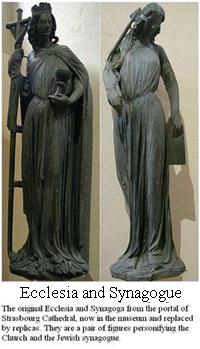 Paul listed 27 names of leaders and families belonged to the Church of Rome including Rufus and his mother and greeted them in 'Epistle to the Romans,' which he is said to have written in the city of Corinth in southern Greece during his third evangelistic journey. A name, which seems to be a member of Herod royal family, Herodion, is also seen in the list. The content of this letter, which consists of 16 chapters, is vast and diverse. It can be said a manifesto to clarify the position of the church movement that Paul led to the Church of Rome rather than a personal letter of Paul. It seems that Tertius, one of the followers in Cenchrea, a city near Corinth, wrote the letter for Paul under the witness of Gaius, a host to the whole church in Corinth and Erastus, the city treasurer and his brother Quartus and Phoebe, a deacon in the church in Cenchrea, was entrusted the letter to send to Rome. Therefore, it can be seen that a prototype of Ecclesia, the body of non-circumcised gentile believers, was present in Rome and 'Messiah faith not according to the flesh' seems to have sprouted among the believers who did not know Jesus in his lifetime. ○Apollos and another version of 'The Twelve Apostles' 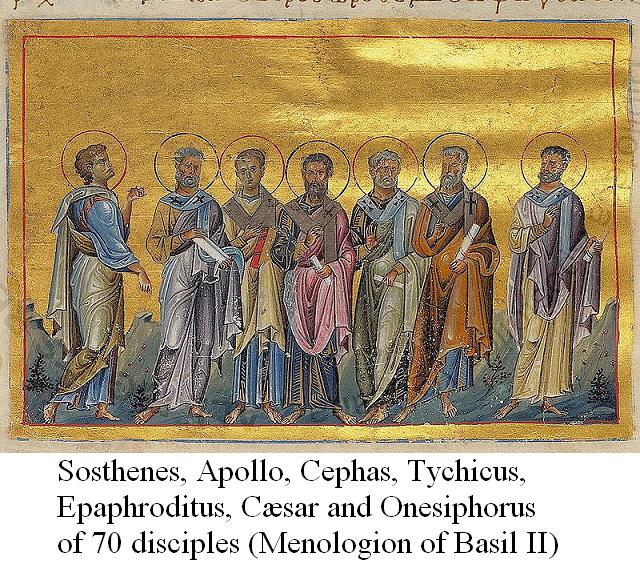 While Paul still traveled from place to place throughout the region of Galatia and Phrygia, a Jew named Apollos, a native of Alexandria, came to Ephesus. He was a learned man, with a thorough knowledge of the Scriptures. He spoke boldly and with great fervor and taught about Jesus accurately in the synagogue, though he knew only the baptism of John. (Acts 18:24-28) On the other hand, The Acts of the Apostles does not specifically mention whose disciples the men whom Paul met in Ephesus were. However, from the context, they seem to have been the followers of Apollos. The Acts adds, "There were about twelve men in all." (Acts 19:1-7) Thus it implies that there were different versions of the story of "The Twelve Apostles." ○Paul's origin 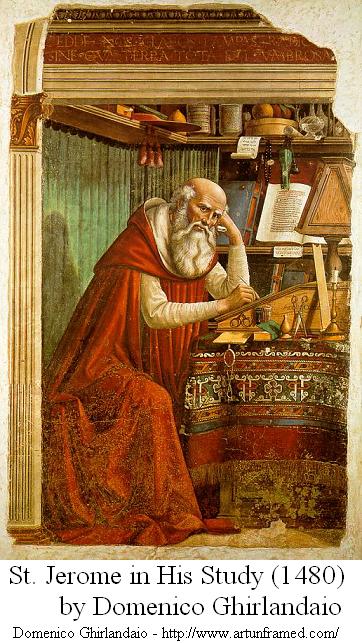 According to 'The Gospel of Luke' and 'The Acts of the Apostles,' Paul was born and grew up in the city of Tarsus in the Roman province of Cilicia, in Asia Minor. His parents were Jewish but had obtained Roman citizenship, which he thus inherited by right of birth. Jerome, the 4th-century Christian writer, knew a different tradition. He wrote that Paul's parents were from Gischala, a Jewish town about twenty-five miles north of Seppholis, and it was there that Paul was born. When the revolts broke out following the death of Herod the Great in 4 B.C., Jerome reports, Paul and his parents were captured, and as part of the large-scale exile of Galilean inhabitants from Palestine, were sent to Tarsus in Cilicia. Professor James D. Tabor, Chair of the Department of Religious Studies at the University of North Carolina, says in his book 'The Jesus Dynasty,' "I am inclined to value Jerome's account since he must have thought it was based on good evidence to be willing to contradict the book of Acts, which says that Paul was born in Tarsus." If so, it is no wonder that Paul was also a members of the Synagogue of the Freedmen-Jews. ○Roman governor of Cyprus and Rufus' mother 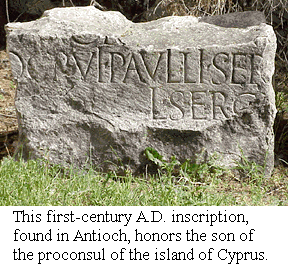 Paul changed his Hebrew name of Saul into Latin name of Paul, after he had met with Sergius Paulus, the Roman governor of Cyprus, in the course of his first missionary trip. Thereafter Paul has got honorific title, "the Apostle," together with Barnabas in 'the Acts of the Apostles,' much earlier than the first Apostolic Conference, which acknowledged their status of the Apostle to the Gentiles. Therefore, it is not hard to imagine that the families of Roman proconsul of Cyprus Sergius Paulus and his son Lucius Sergius Paullus, Roman Senator lived in Pisidian Antioch, played a major role not only in Asia Minor but also in Greek and even in Rome as patrons of Paul's missionary activity from both sides of funds and political support. Paul may even have obtained Roman citizenship also through Paulus' family. 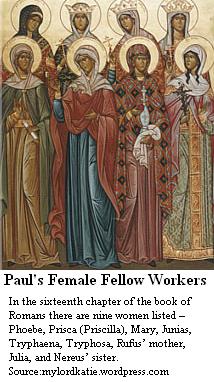 Paul wrote, "Greet Rufus, whom the Lord picked out to be his very own; and also his dear mother, who has been a mother to me." at the end of 'Epistle to the Romans.' Paul describes Rufus' mother "She has been a mother to me." (Roma 16:13) If Rufus mentioned by Paul in the letter is same person of the son of Simon who had carried the cross to Golgotha on behalf of Jesus, (Mark 15:21/Mat 27:32/Luke 23:26) is mother of Rufus not only might have brought up Jesus until the age around 30 on behalf of Joseph and Mary together with her own children but also might have been a spiritual mother who converted Paul to Christianity. Then, Jesus and Paul would have been spiritual brothers through her. ○The conflagration at the end of the eon 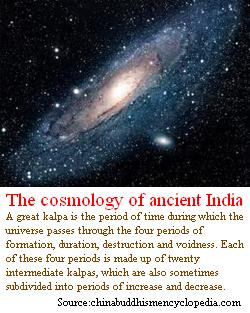 Once upon a time, a monk asked Zen Master DaSui FaZhen (大隋法真:834-915), "When the conflagration at the end of the eon is inflamed, the whole universe will be destroyed. I wonder if this one will also be destroyed or not." The monk asked on the cosmology of ancient India, which describes the end of world as everything is burnt up by the great kalpa fire (conflagration), if 'this one', that is, 'the original face' in terms of Zen Buddhism or 'the spirit of truth', in other words, 'the Holy Spirit' in terms of Christianity, is also destroyed at the end of this world. It may be mentioned here that Zen Master DaSui from YanDing county of DongChuan prefecture in SiChuan province had called on more than sixty men of knowledge nationwide including WeiShan LingYou(潙山霊祐771-853) during the later period of the Tang Dynasty and the five dynasties and ten kingdoms period in China and eventually received the Dharma Mind Seal from Master ZhangQing DaAn (長慶大安), a disciple of BaiZhang HuaiHai (百丈懐海) and served as the abbot of a temple of Mount DaSui in SiChuan province, In ancient Indians are said to have thought that this world is consisting of three thousand large worlds each composed of a thousand small worlds and it is destined to pass through four great epochs, that is, ①Krita Yuga (epoch of creation), ②Treta Yuga (epoch of preservation), ③Dwapara Yuga (epoch of destruction) and ④Kali Yuga (epoch of emptiness) and everything is finally burned up by Kalpa Fire (the conflagration at the end of the age). Brandishing the cosmology of ancient India, the monk asked DaSui, if 'the original face', the fundamental philosophy of Zen Buddhism, will also be destroyed. However, Sui answered simply, "Destroyed." The monk said, "If so, then will it go with the other?" It means, if it will disappear together with this worlds. Sui said, "You are right. It will go along with the other." 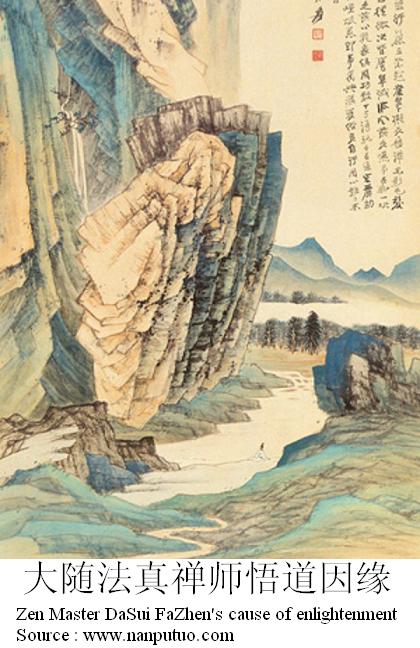 --- --- By the way, during the Northern Song era (960-1127) another monk made the same question to Master SuiZhou XiuShanZhu(隋州修山主), a disciple of Master DanXia ZiChun (丹霞子淳1064-1117), ShanZhu answered, "It's not destroyed." The monk said, "Why isn't it destroyed?" ShanZhu said, "Because it's the same as the universe." From the general common sense, ShanZhu's answer is logically inconsistent. Any way, DaSui said, "It will be destroyed like the universe." But ShanZhu said, "It will not be destroyed because it's the same as the universe." --- --- Since the monk didn't understand what DaSui said, he inevitably had this matter on his mind and went all the way to Mount Touzi of Tongcheng prefecture at Shuzhou in Henan province to visit Master TouZi DaTong (投子大同:805-914) who was a disciple of Master CuiWei WuXue (翠微無学禅師). TouZi asked him, "Where did you come here from?" The monk said, "From DaSui in western Sichuan." TouZi said, "What did DaSui have to say?" The monk then recounted the former conversation. TouZi burned incense and bowed and said, "A living buddha has appeared in western Sichuan. As for you, hurry back to him!" The monk hurried back to DaSui but Sui had already passed on. What an embarrassment for this monk! Hence XueDou ChongXian (雪竇重顕:980-1052), the commentator of "The Blue Cliff Record" in which this Koan (Koans are subjects which Zen masters give their students in the meditation hall) is recorded, made following his verse. In the light of the conflagration at the end of the eon he poses his question The patchrobed monk is blocked by the double barrier. What a pity for him bounded to a single phrase, "it follows the other," Eagerly he travelled out and back solitarily for ten thousand miles. XueDou pitys on the monk who was blocked by the double barrier of words, 'be destroyed' and 'not be destroyed' and was bewildered by a single phrase, 'it follows the other' and travelled out and back alone for ten thousand miles but he also seems to pity Zen priest in general. <To be continued> [Reference] 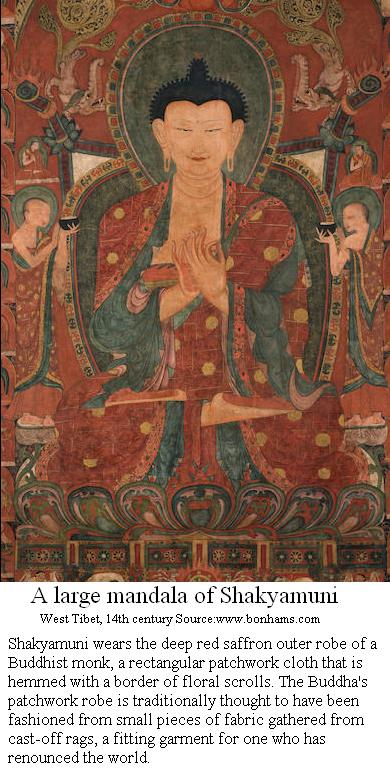 ○《The Blue Cliff Record》Case 29: DaSui and the "Kalpa Fire" A monk asked DaSui, "When the great kalpa fire is inflamed, the whole universe will be destroyed. I wonder if this one will also be destroyed or not." DaSui said, "Destroyed." Themonk said, "If so, will it be gone with the other?" DaSui said, "Gone with the other." ○Patchrobed monk Patchrobed monks especially mean Zen priests. Once upon a time, Shakyamuni left the palace, went to the graveyard, took some discarded burial shrouds, sewed them together, steeped them in saffron for hygiene purposes and wore that as clothing the rest of his life. Then, in accord with that tradition, Buddhist monks have till now sewn strips of cloth together, steeped them in saffron and worn them. These robes for fully ordained Buddhist monks and nuns are also called kasaya named after pronunciation of saffron dye in Sanskrit. 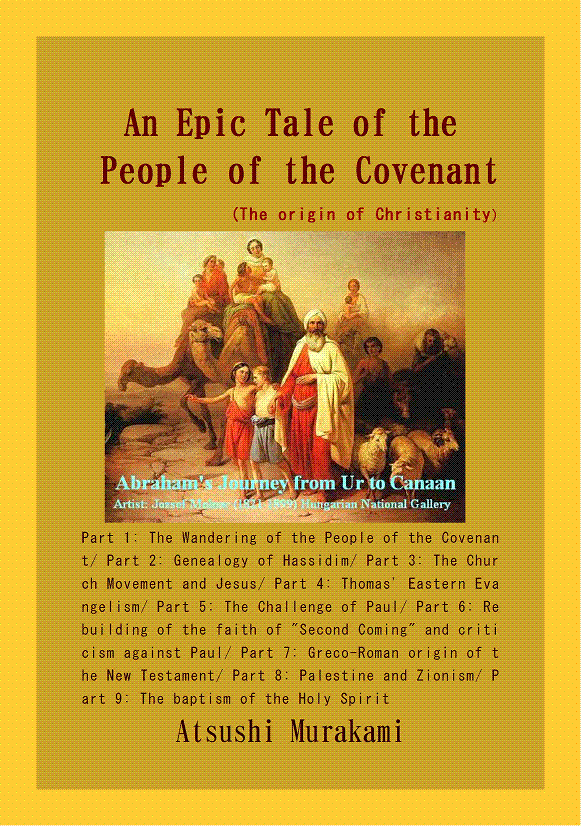 ○What is "Baptism with The Holy Spirit"? According to the dialectic of the Gospel of John, 【Thesis】"A man can possess eternal life through accepting testimony of the Son of man and being baptized by him." (John 5:24) 【Anti-thesis】But "The one who comes from the earth cannot accept the testimony by one from heaven."(John 3:32) How then can a man possess eternal life? 【Synthesis】"If you want to be baptized with the Holy Spirit, you can just go back to the word which was with God in the beginning (John 1:1) and certify that God is truthful. (John 3:33)" When he said, "You are Huichao," Zen Master Fayan thrusted vivid Self in Huichao in front of his eyes. Purchase here ○One world:The aim of SEAnews ◆Recruitment of Ad-SEAnews CanvassersYour Comments / UnsubscribeSEAnews TwitterSEAnews MessengerSEAnewsFacebookSEAnewsGoogleSEAnews eBookstoreSEAnews eBookstore(GoogleJ)SEAnews world circulation |
|
[Your Comments / Unsubscribe]/[您的意见/退订]/[ご意見/配信停止]
Please do not directly reply to the e-mail address which is used for delivering the newsletter. 请别用递送新闻的邮件地址而直接回信。 メールをお届けした送信専用アドレスには返信しないで下さい。 |